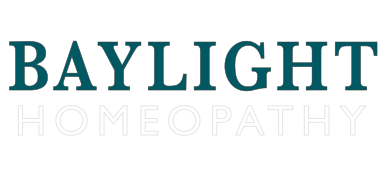Practitioner Certificate Course
Year 1 - 72 hours
Introduction to Homeopathy
The first year at Baylight introduces the basics of the history, philosophy, and practice of homeopathy. We explore the nature of disease and restoration of health, comparing this with conventional medical practices.
We discuss the ins-and-outs of 50 or so first aid remedies, and look at homeopathic treatments through the lens of common acute illnesses. We cover helpful remedies for bumps, bruises, shock, broken bones, colds, cough, flu, earache, menstrual problems, digestive issues, and more. Upon completion of the first year, students have a working, foundational knowledge of homeopathy and the tools to apply remedies in acute circumstances. Each participant receives a Certificate in Homeopathic First Aid and Acute care, and the confidence to treat themselves as well as their family members and friends.
Year 2 - 180+ hours
Homeopathic Methodology
This year provides an emphasis on the understanding and treatment of complex and chronic conditions. The study of “The Organon of Medicine,” the 'bible' of homeopathy, provides a background in homeopathic philosophy. Students continue to become familiarized with remedy states and how to recognize them in clients. We will have the chance to observe live cases in class and will gain valuable experience in the process of case-taking, with a particular emphasis on the energetic components of disease. We will also conduct a remedy proving as part of studying homeopathic pharmacology. In addition to this methodology, we introduce the ins and outs of homeopathic practice and clinical ability.
Year 3 - 180+ hours
Professional Practice & Clinical Abilities
This year includes continued focus on the clinical practice of homeopathy: case-taking, analysis, evaluation, and follow up. We also touch upon the evolution of spirituality and its relationship to the homeopathic model.
Students will learn what is involved in setting up a practice, as well as the benefits of becoming a registered member of the North American Society of Homeopaths and/or of pursuing certification through the Association for International Homeopathic Certification. Through continued exposure to live and cured cases, students gain confidence in their competence as homeopaths. Students will be encouraged to establish relationships with other skilled practitioners for clinical mentoring and supervision. A final project of the student’s discretion will complete the requirements for the Practitioner Certificate.
Year 4 - 180+ hours
Professional Practice & Clinical APPROACHES
Clinical Focus, Guest Lecturers TBD
Practitioner program students also need to take the Pathospirituality lecture series at some point in their education. Most students also take Homeopathic Medical Sciences (Anatomy & Physiology, Pathology of Disease, and Lab Diagnosis) with Dr. Sarah Kotzur, ND. This course is offered separately, as there are many students who have already met these requirements prior to attending Baylight courses. A&P, Pathology, and Lab Diagnosis are prerequisite for homeopathic practice, and a specific prerequisite for becoming a Registered Member of NASH and also for taking the AIHC exam to become an internationally certified homeopathic practitioner.
SAMPLE Syllabus TOPICS BY YEAR
Year One
Session 1: History & Evolution of Homeopathy
Introduction to Health & Disease in the Homeopathic Model: Allopathic vs Homeopathic
First Aid: Bleeding, Choking, Drowning, Allergic Respiratory Swelling, Acute Asthma, Fainting, Poisoning
Session 2: Homeopathic Provings
First Aid: Eye Injuries, Dental Work, Lacerations and Abrasions, Puncture Wounds, Musculoskeletal Injuries, Contusions, Fractures
Session 3: Remedy Sources: Animal, Vegetable, Mineral, Imponderable
Intro to the Organon
Homeopathic Pharmacology, Homeopathic Resources & Pharmacies
First Aid: Head Injuries, Burns, Heat Exhaustion, Heat Stroke, Bites & Stings, Allergic Reactions, Urticaria
Session 4: Homeopathic Casetaking
Introduction to the Repertory
Narrowing the Field of Remedies
Remedies for Acute Illness
Session 5: Deepening Understanding of Materia Medica
Repertory Exercises, Practice Cases, First Aid Scenarios
Remedies for Acute Illness, cont'd
Session 6: Introduction to Miasms
Repertory Exercises, Practice Cases, First Aid Scenarios
Remedies for Acute Illness, cont'd
Session 7: Homeopathic Casetaking - Intro to Clinic
Repertory Exercises, Practice Cases, First Aid Scenarios
Remedies for Acute Illness, cont'd
Session 8: Clinical Exploration
Repertory Exercises, Practice Cases, First Aid Scenarios
Remedies for Acute Illness, cont'd
Session 9: Epidemics & Public Health
Repertory Exercises, Practice Cases, First Aid Scenarios
Finish Up Remedies for Acute Illness
Year Two
Session 1: Homeopathic Process
Sources of Remedies
Periodic Table & Chemistry of Remedies
Session 2: Salts, Carbons, Lanthanides
The Four Agreements
Session 3: Cell Salts & Facial Diagnosis
Principles of Cure and Preparation of Medicines
Session 4: Flower Essences
Miasms & Nosodes
Taking the case & Miasms
Session 5: 200 Small Remedies
Session 6: HMC Seminar with Lou Klein - Portland, ME
Session 7: Introduction to Plants & Plant Families
Session 8: Animal Kingdom Themes
Snake Remedies
Session 9: Spiders, Bugs, & Butterflies
Case Analysis
Session 10: Sea Remedies
Year 3
Session 1: Milk Remedies
Remedy Reactions
Session 2: Bird Remedies
In-Class Trituration Proving
Session 3: Imponderable Remedies
Inimicals and Chronics: Remedy Relationships
Session 4: Bowel Nosodes (Bacteria, Viruses, DNA)
Who's Who in Homeopathy
Session 5: Miasms & Stages
Session 6: Homeoprophylaxis with Kelly Callahan, CCH
Session 7: HMC Seminar with Lou Klein - Portland, ME
Session 8: Women's Remedies
Matridonal Remedies
Session 9: Pediatric Prescribing
Ethics, Setting Up a Practice, Running a Business
Homeopathic Research
Session 10: Fungi & Fossils
Remedies for Death & Dying
Year 4
TBD
“I have studied at other programs before and so often felt like I didn’t know what to do when trying to find fitting remedies. After studying at Baylight I have more resources, greater understanding, improved confidence, and most importantly, I am getting better results with my cases! Not to mention the cohort and instructors are warm and wonderful.”

